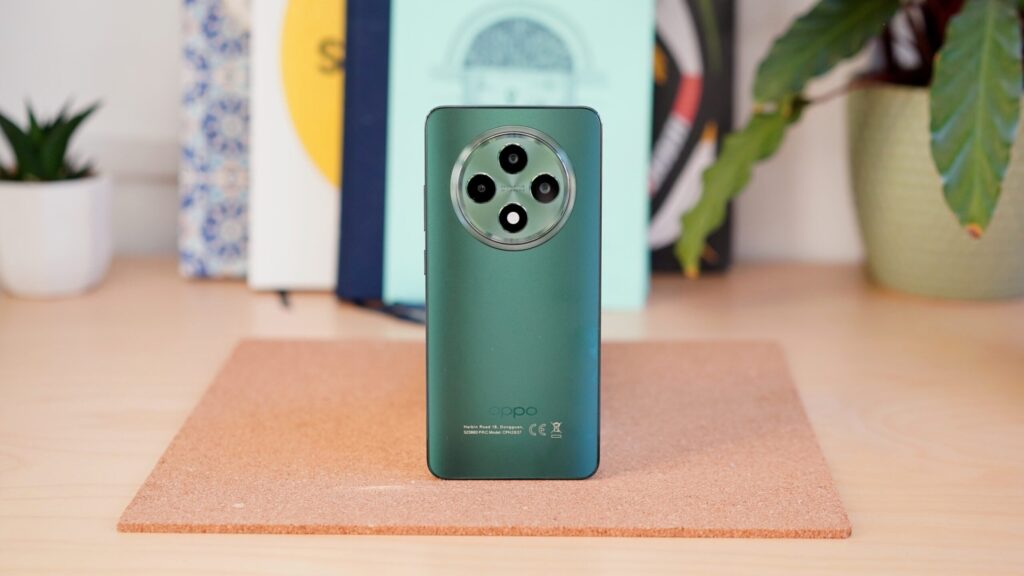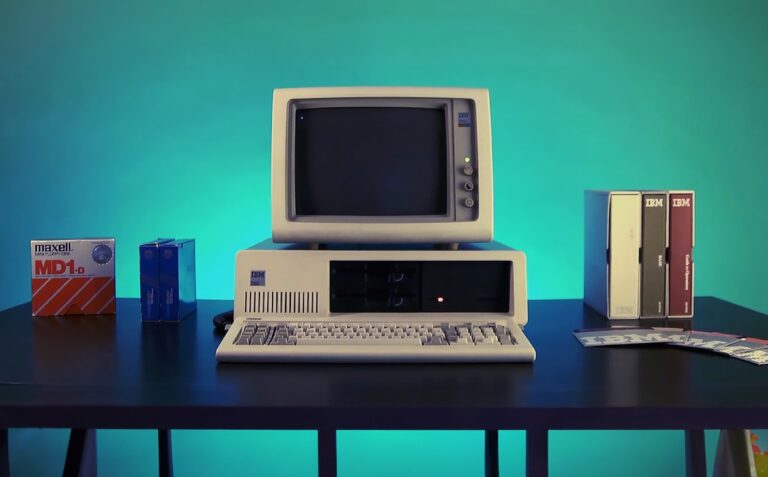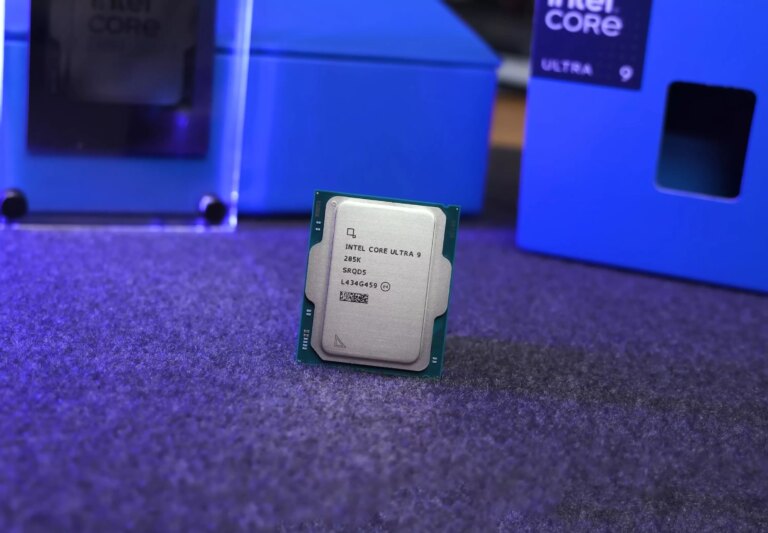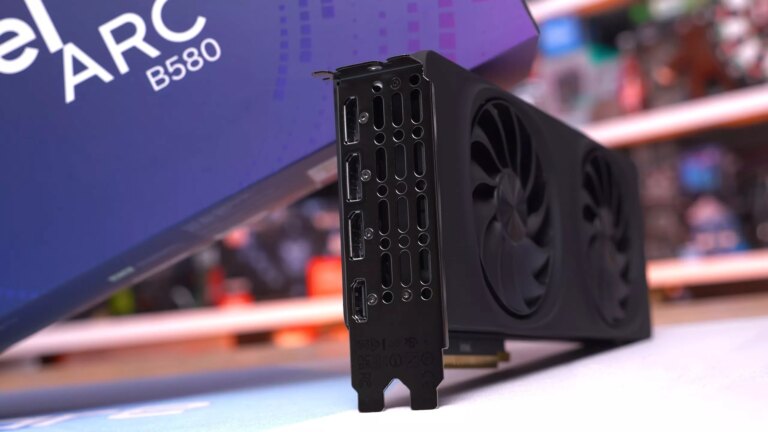
Verdict
The Oppo Reno 12 FS 5G is a generally competent smartphone pick for your £300, with a decent display, solid build quality, and decent battery life. It fails to stand out in any one department, however, and both performance and camera quality aren’t quite up to snuff.
Pros
- Big, bright AMOLED display
- Solid build quality
- Neat Breathing light notification ring
Cons
- Performance not the best for the money
- Mediocre camera set-up
- Truly terrible night shots
-
Breathing lightThe Oppo Reno 12 FS 5G’s Breathing light offers pleasant colour-coded face-down notification signals. -
Two-day battery lifeThe Reno 12 FS 5G’s 5000mAh battery could get you through two days of light to moderate usage. -
Vibrant OLED displayThe Reno 12 FS 5G’s 6.67-inch AMOLED is big, vibrant, and can get rather bright.
Introduction
With phones like the Oppo Reno 12 Pro 5G and the Oppo Find X8 Pro, the world’s fourth or fifth biggest smartphone maker (it’s in a bit of a scrap with Vivo) is making a renewed push into Western markets. The Oppo Reno 12 FS 5G sees it taking on the £300-ish price bracket with trademark competence.
In typical Oppo fashion, it’s used a limited budget to cover more or less all bases. There’s a decent OLED display, solid enough performance, excellent battery life, and a main camera that won’t let you down in good lighting. Oppo’s software, while still far from the best, is also smooth and reliable.
Of course, Oppo isn’t the only one doing this kind of thing. Just this year we’ve seen the OnePlus Nord CE 4 Lite 5G, the Poco X6 5G, and the Motorola Moto G85 5G all selling for similar money.
All of these phones dropped the ball in certain respects, however, so there’s an opportunity to stand out from the crowd if Oppo can nail its brief.
Design
- Solid all-plastic design
- Distinctive Halo Light
- Only available in ‘Black Green’
The Oppo Reno 12 FS 5G might technically belong to the same family as the Oppo Reno 12 Pro 5G, but its basic design language borrows more from the flagship Oppo Find X8 Pro.
It’s got the same large circular camera module, with its four ‘lenses’ arranged in a plus sign formation. The most distinctive feature is a subtle ring light that runs around those camera components, though Oppo seems unclear on how we should refer to it.

On the Oppo website, it’s referred to as the Halo Light. Search for that in the Settings menu, however, and that’s nowhere to be seen. Here the system is referred to as the Breathing light.
Whatever its name, you can configure this rear-mounted ring light to pulse in particular scenarios, and to output in various colours, or even mixtures of colours. These can be attributed to separate functions, so one colour pattern for notifications, another for games, and another to play during music playback.
It’s a neat differentiating factor, and could prove particularly compelling if you’re a ‘screen-down, phone on silent’ type of person.


The rear panel and side frame of the phone are all made of plastic, with a pleasing silky finish to the former and a slightly cheap shiny finish to the latter. Both are prone to exhibiting greasy paw prints, though the rear panel wears them better.
There’s just the one colour option, unfortunately, but it’s an appealingly deep shade of green. Oppo seems to be calling it ‘Black Green’, which is a little odd, as if there was some kind of miscommunication between the press and product teams.
Around front, Oppo has cut costs by eschewing the Reno 12 Pro’s 2.5D display. There’s the barest hint of a rounded lip here, but it’s essentially a flat screen. The surrounding bezels are somewhat on the chunkier side, particularly the chin.


Oppo has given its phone an IP64 rating. This means that it’s a little more dust-resistant than, and similarly splash-resistant to, the IP54-rated OnePlus Nord CE 4 Lite and the Poco X6.
With a width of 7.76mm and a weight of 187g, it’s broadly competitive with the rivals we’ve mentioned above. Only the Moto G85 5G really stands out for being both skinnier and quite a bit lighter than the rest.
The main thing to note in the Oppo Reno 12 FS 5G’s favour is that it feels reassuringly solid in the hand, with minimal flexing and creaking despite its all-plastic build. Oppo boasts about using a “high strength alloy framework” in the phone’s construction, and I believe it.
Screen
- 6.67-inch AMOLED
- FHD+ resolution
- 120Hz refresh rate
The Oppo Reno 12 FS 5G’s display is pretty much par for the course at this price – and that’s a good thing. Large, bright, Full HD 120Hz AMOLED panels have become table stakes in the £300 category.
Let’s run through the specs anyway. Oppo’s giving you a 6.67-inch AMOLED with a 2400 x 1080 resolution, and a maximum refresh rate of 120Hz (though it can drop down to 60Hz). You also get a nice responsive maximum touch sampling rate of 240Hz.


The Poco X6 display is a little sharper, but the Oppo can hit a higher peak brightness of 2100 nits. That’s a localised measurement, which is good news for HDR content, but it’ll also hit 1200 nits in bright sunlight, with a respectable typical brightness of 600 nits.
Given the identical specs and shared company ownership, I’d bet good money that the Oppo Reno 12 FS 5G shares the same display as the OnePlus Nord CE 4 Lite. Which would also mean that it uses the same display tech as the OnePlus 11, one of our favourite flagship phones of 2023.
While we’re talking about the synergies with Oppo’s sub-brand, the Reno 12 FS 5G’s screen even boasts its version of the OnePlus’s Aqua Touch feature, here called Splash Touch. This ensures that the screen remains responsive even when it or your hands are wet.
Performance
- MediaTek Dimensity 6300
- Generous 12GB of RAM
- Capacious 512GB of storage
So far I’ve drawn a couple of comparisons with the OnePlus Nord CE 4 Lite, but Oppo has departed from its stablemate when it comes to the Reno 12 FS 5G’s performance.
Instead of an ancient Snapdragon 695 chip, Oppo has gone with the MediaTek Dimensity 6300. This is a much more modern chip, having been released this year (2024), but its performance really isn’t all that impressive.


Indeed, in our usual suite of benchmark tests, the Reno 12 FS scored about the same as the OnePlus Nord CE 4 Lite in the CPU-focused Geekbench 6 tests, and measurably worse in the GPU-focused GFX Bench tests. It also falls behind the Moto G85 5G with its Snapdragon 6s Gen 3 and the Poco X6 with its Snapdragon 7s Gen 2.
Where Oppo has smartly bolstered things is with a wodge of extra RAM. You get 12GB as standard, which helps to smooth out those app-swapping tasks. It also makes the Reno 12 FS 5G better suited to carrying out AI tasks, which are famously memory-hungry.
Suffice to say, though, this isn’t the phone to get if you want to indulge in a spot of 3D gaming. It’ll boot up and play the likes of Genshin Impact and console racer Wreckfest, but even on low graphical settings they don’t run very smoothly.


You don’t buy any £300 phone for its gaming chops, of course (though the Poco brand kind of positions itself along those lines). Rather, you tend to buy one hoping for a generally smooth all-round experience, and on that front, the Oppo Reno 12 FS 5G holds its own.
It’s not rapid by any means, but it unlocks quickly, flits between apps and menus without too much of a protest, and generally justifies the inclusion of a 120Hz display when navigating around.
One spec deserves praise here; Oppo has given its affordable phone 512GB of storage as standard, which is a fantastic provision.
Camera
- 50MP main camera with no OIS
- Weak 8MP ultrawide
- 2MP macro camera, no telephoto
- Adequate 32MP selfie cam
The Reno 12 FS 5G’s camera set-up seems to be led by a 50MP 1/2.88″ OmniVision OV50D sensor, which we’ve quite commonly seen used in the ultra-wide and telephoto cameras of more capable phones.
Used here as the main camera, it can produce decent shots in ideal lighting conditions. However, I did note that it tended to struggle with dynamic range, blowing out highlights on an unusually sunny English autumn’s day.
I quite like Oppo’s tone, which doesn’t go too vibrant or punchy. This can be dialled in further using one of its many different shooting profiles.
Night shots look outright terrible, however, with a truckload of grain and a distinct lack of detail. They’re so bad, in fact, that I almost wonder whether the dedicated Night mode is functioning properly right now.
It seems that small sensor, combined with a lack of OIS (a major omission) means that it simply can’t scoop up sufficient light in low-light conditions. I shot these same night shots concurrently with the Moto G75, which costs £40 less than the Reno 12 FS 5G, and the comparison is not flattering for Oppo’s phone.
Oppo hasn’t managed to repeat the Reno 12 Pro 5G’s great trick of including a telephoto camera in a sub-£500 phone, but then the Reno 12 FS 5G is that much further south of £500.
Ostensibly zoomed-in shots are just about usable, if already a little soft, using the 2x hybrid zoom. Any further (5x or 10x) and you’re talking vaseline-on-lens levels of smudge.
We don’t expect a dedicated telephoto camera at this price, but that’s no excuse for throwing in a perfunctory 2MP macro camera in its stead. Such a provision does no-one any good, other than as a box-ticking exercise for the manufacturer. Triple camera: check.
The Reno 12 FS 5G’s ultra-wide camera pairs a humble 8MP example paired with a 5P lens. It turns out 112-degree wide shots with a notable drop in detail compared to the main sensor, while its handling of dynamic range also suffers further. It’s far from the worst ultra-wide I’ve seen though, so if you’re intent on capturing those landscape shots – sharpness be damned – it’ll do a job.
One of the Oppo Reno 12 Pro 5G’s best camera provisions is a strong 50MP selfie camera with autofocus, and it’s a shame that this hasn’t been carried across to the Reno 12 FS 5G. What you get instead is a still pretty reasonable 32MP fixed-focus front camera.
It can capture adequate selfies that might lack a little in dynamic range and rich colour, but do a passable job with subject detail. I appreciated the fact that it takes slightly wider shots by default, with the choice to crop in slightly for more conventional 1x shots.
Software
- ColorOS 14.0 on Android 14
- Smooth but cluttered UI
- Security updates until July 2027
Oppo’s ColorOS has always been one of those middle-of-the-pack Android UIs. It’s still way too busy for my liking, with Google’s tastefully honed menus and icons binned in favour of something more brash. There’s a split notification pane filled with toggles and sliders.
However, ColorOS is rarely less than crisp and fluid, even on cheaper phones. That’s still the case on the Reno FS 5G, where general navigation through its menus remains smooth despite the relatively humble hardware.


It also supplies you with plenty of customisation options, so you can decide between gesture and virtual button navigation, and between an app tray or a straight-up home screen.
The company also offers a handful of AI tools, most prominently the AI Studio app. This odd little app lets you generate stylised AI pictures (Disco style, British style, Festive Glow-Up, to name just three) using a headshot of you or anyone you know, paid for by an in-app currency called Stars (but which are shaped like gems). It’s all a bit weird.
Oppo also supplies its own Theme Store, which lets you customise the look of your home screen through in-app payments.


There’s a fair amount of third-party bloatware here, with the likes of TikTok, Amazon, Booking.com, Facebook, LinkedIn, and AliExpress preinstalled. You also get a superfluous web browser, a third-party app store, and a bunch of poor-quality games.
Oppo isn’t shouting about any software update promises here, which likely means you won’t see any more than one or two major Android upgrades. Oppo does reveal that it’ll supply security updates until July 2027, which is far from outstanding.
Battery Life
- 5,000mAh battery
- Two-day potential
- 45W charging support but no brick in box
Oppo has supplied its phone with a 5,000mAh battery, which is pretty standard for most larger Android phones these days.
It produces the goods when it comes to stamina. On a day of fairly intensive usage, with more than 5 hours of screen-on time, I was left with 39% in the tank. On a lighter day with 3 hours and 3 minutes of screen-on time, I was left with just over 50%. There’s genuine two-day potential here, if you’re not a particularly heavy phone user.
If you do like to consume lots of media on the go, then an hour of Disney+ streaming at 50% screen brightness sapped 4% of a charge. That’s pretty strong.


Oppo claims that the Reno 12 FS 5G supports 45W charging, but like an increasing number of manufacturers, it no longer supplies said fast charger in the box. This is potentially more problematic for manufacturers like Oppo that use their own patented fast charging standard, here called SuperVooc.
However, with the 65W Samsung charger I had to hand, I was still able to get it from empty to 57% in 30 minutes, and to full in 70 minutes. That’s slower than the OnePlus Nord CE 4 Lite with its 80W charging support, though again that requires you to supply the requisite SuperVooc charger.
It’s also slower than the Poco X6 with its 67W charging support, and that phone includes the necessary charger in the box. The Moto G85 5G is the runt of the littler with its 30W charging, and again it doesn’t come with a charger.
Latest deals
Should you buy it?
You want a cheap phone with face-down notifications
The most unique thing about the Reno 12 FS 5G is probably its Breathing light, which grants colour-coded face-down notification signals.
You want to take low light shots
The Oppo Reno 12 FS 5G takes truly terrible night shots, with a standard way below its price tag.
Final Thoughts
With a vibrant OLED display, solid build quality, and a battery that might just see you through two days, the Oppo Reno 12 FS 5G ticks a lot of boxes for its £300 asking price. Its performance isn’t particularly impressive, however, and its camera is barely adequate, with a truly awful Night mode.
While it doesn’t suffer too badly in any one department (Night shooting aside), nor does the Oppo Reno 12 FS 5G stand out in any particular way. There are several other phones costing about the same money with similar attributes, and many of them offer at least one eye-catching element.
Indeed, this might be an issue with this particular sub-£300 category as much as the phone itself. Spending just a fraction more money brings in phones like the Moto Edge 50 Fusion, which offers much more to get excited about.
If you can’t afford a penny over £300, and you can’t find any offers on slightly more expensive and way more accomplished phones, the Oppo Reno 12 FS 5G isn’t a bad bet. But those feel like some pretty big ifs.
How we test
We test every mobile phone we review thoroughly. We use industry-standard tests to compare features properly and we use the phone as our main device over the review period. We’ll always tell you what we find and we never, ever, accept money to review a product.
Find out more about how we test in our ethics policy.
Tested as main phone for a week
Camera testing in a variety of environments
Tested and benchmarked using respected industry tests and real-world data
FAQs
No, you’ll need to supply your own charger.
It should last at least a day, and more likely two days if your usage is relatively light.
UK RRP
Manufacturer
Screen Size
Storage Capacity
Rear Camera
Front Camera
Video Recording
IP rating
Battery
Fast Charging
Size (Dimensions)
Weight
ASIN
Operating System
Release Date
First Reviewed Date
Resolution
HDR
Refresh Rate
Ports
Chipset
RAM
Colours
Stated Power
›



